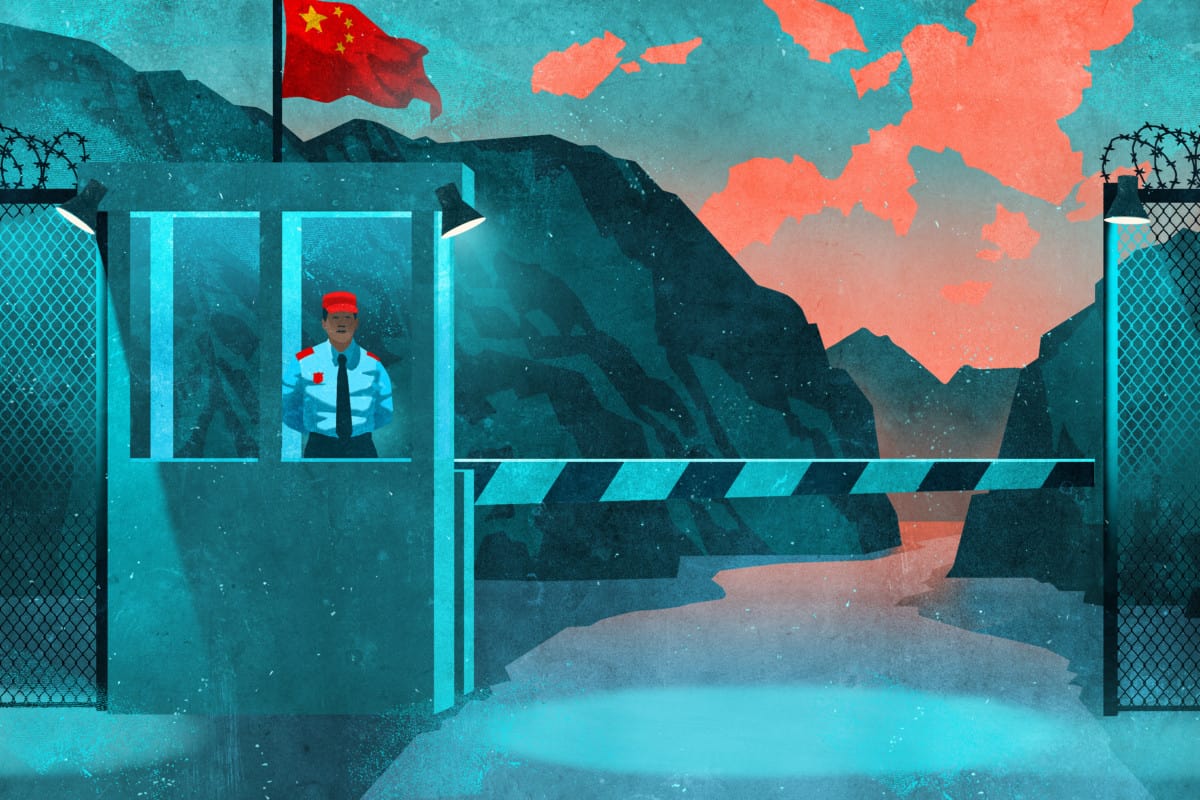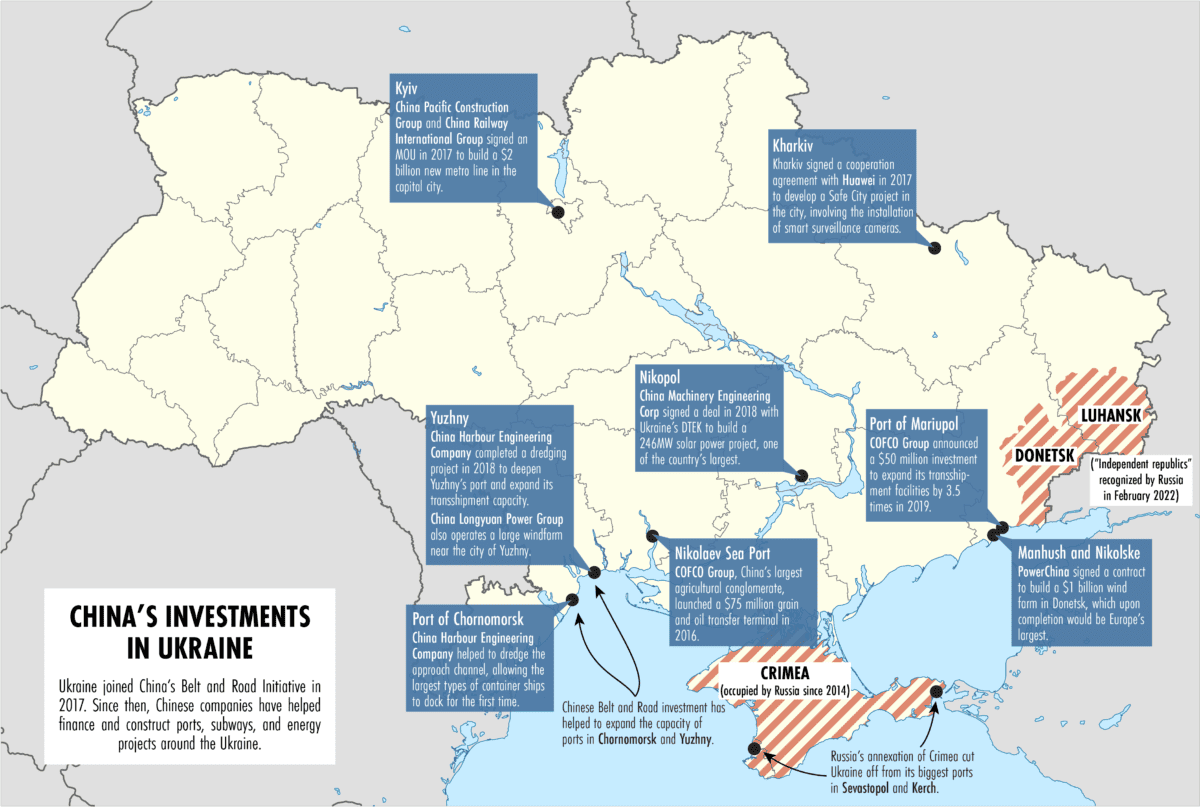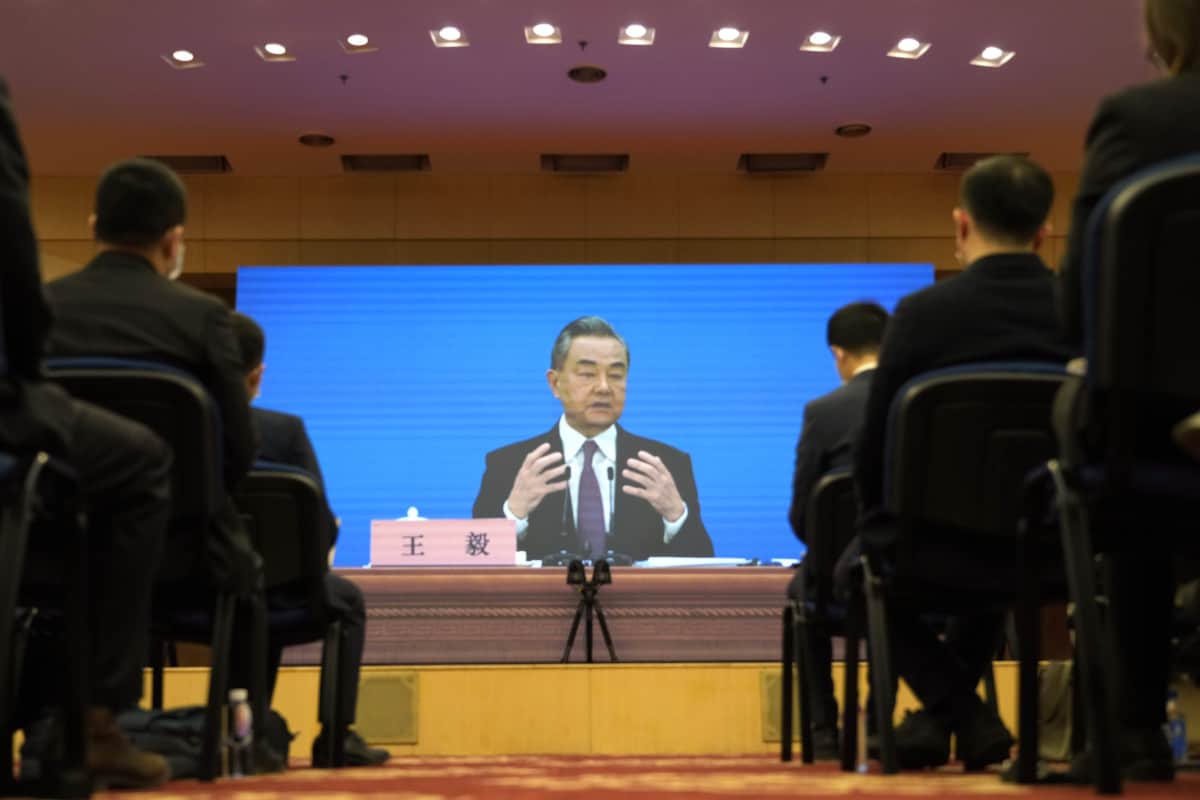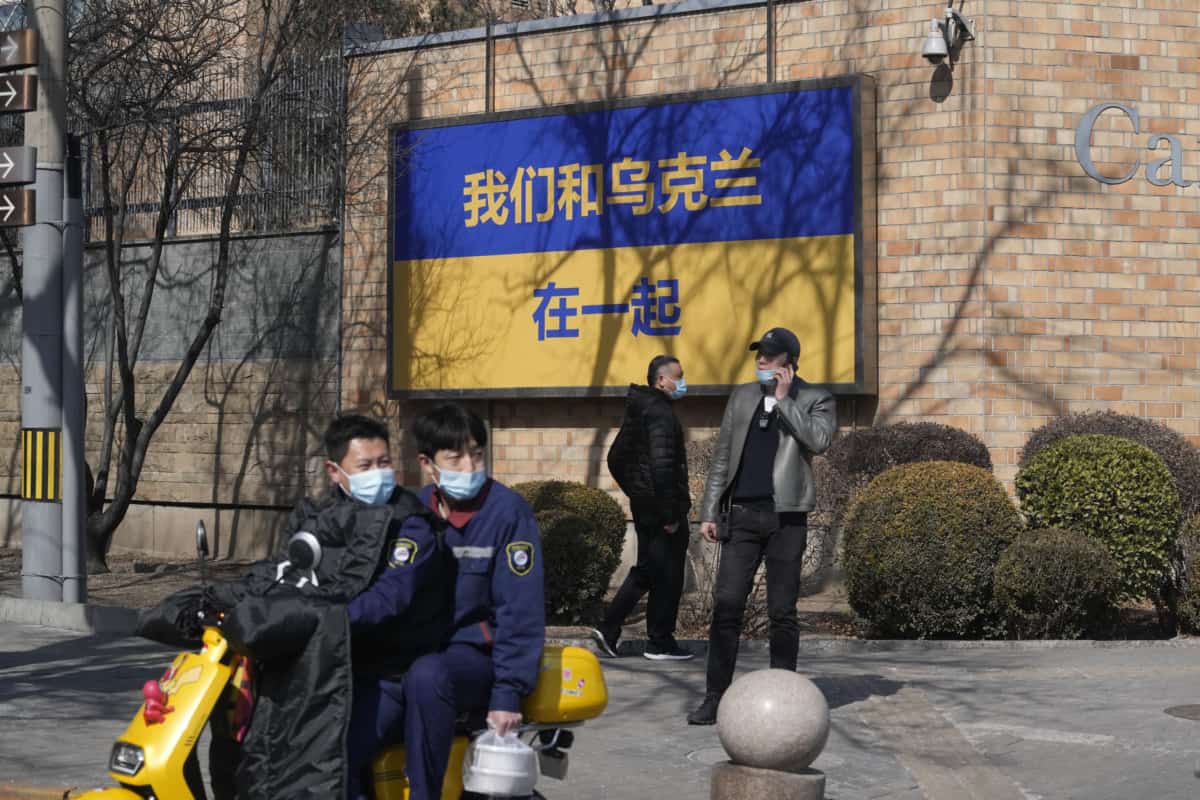Good evening. If you’re familiar with Wolf Warrior II, you might recall that the main character in the blockbuster is a Chinese military commando turned mercenary who is called on to save Chinese and Africans in grave danger. Well, our cover story this week looks at the real-life version of this plot line: the Chinese private security companies called on to protect China’s interests abroad. Elsewhere, we have infographics on China’s considerable ties to Ukraine; an interview with Shelley Rigger about Taiwan and why it matters so much to the U.S.; a reported article on why energy-hungry China might reject Russia’s gas; and two op-eds: one from Tony Saich on why it’s unlikely that China will shift its support for Russia and one from Stephen Roach on how China could end the war in Ukraine. If you’re not already a paid subscriber to The Wire, please sign up here.
Want this emailed directly to your inbox? Sign up to receive our free newsletter.

Security Clearance
Last year, the notorious mercenary Erik Prince stepped down from FSG, the Hong Kong private security company he founded in 2014 that has since been taken over by CITIC, one of China’s largest state-owned conglomerates. As Katrina Northrop reports this week, the evolution and current operations of FSG represent a unique element of China’s overseas investment: even as its state-owned companies fan out across the globe through foreign policies like the Belt and Road Initiative, it remains extremely reluctant to deploy its military overseas. Private security companies have emerged to fill that gap.

The Big Picture: China’s Ukraine Ties
Chinese companies have financed and assisted with the construction of vital infrastructure across Ukraine, which is a key transit point for Xi Jinping’s Belt and Road Initiative. But Russia’s unprovoked attack has jeopardized billions of dollars of Chinese investment, as well as long-running military technology cooperation between China and Ukraine. This week, The Wire’s infographics look at what the war means for the future of this economic relationship.
A Q&A with Shelley Rigger

Shelley Rigger is a professor of East Asian politics at Davidson College and a non-resident fellow at the Taiwan Studies Program at Nottingham University. She is the author of numerous books and articles about Taiwan’s society and domestic politics as well as cross-strait issues, including Why Taiwan Matters (2011), and most recently, The Tiger Leading the Dragon (2021). In this week’s Q&A with Jordyn Haime, she talks about why Taiwan matters so much to the U.S. and why the Ukraine war doesn’t offer much for predictions about Taiwan.
Shelley Rigger
Illustration by Kate Copeland

China’s Gas Game
Russia has long been agitating for a deal to supply gas to China via the so-called Power of Siberia 2 pipeline. Once completed, the new pipeline could make Russia by far China’s largest single gas supplier. But as Isabella Borshoff reports this week, Beijing’s desire for supplier diversity stands in the way.

Walking a Tightrope While Leaning to One Side
In an op-ed, Tony Saich, the director of the Ash Center for Democratic Governance at Harvard University, argues that it is extremely unlikely that China will shift its support for Russia, unless Western actions impact too heavily on the Chinese national interest. The unified action of nations in response to Russia’s invasion, he says, is being studied seriously in Beijing.

How China Can End the War in Ukraine
Russia’s invasion of Ukraine is in clear violation of principles that China has held sacrosanct for almost 60 years, argues Stephen Roach, a faculty member at Yale University and former chairman of Morgan Stanley Asia. There is no room for China to finesse that conclusion, he argues, while remaining true to its core values.
Subscribe today for unlimited access, starting at only $19 a month.



